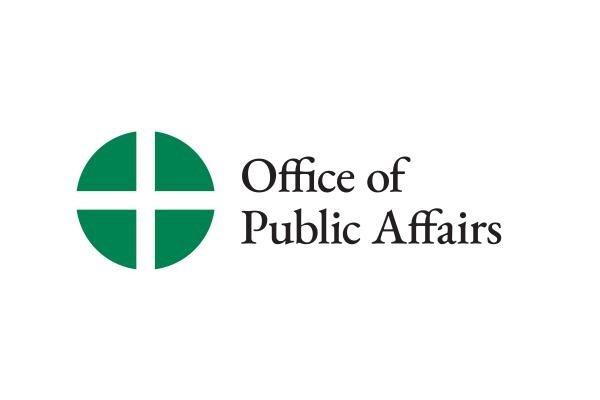Nature of Authority is Theme of Evangelical-Catholic Dialogue
WASHINGTON (January 4, 2007)--The Evangelical – Catholic dialogue held its fifth meeting at the University of St. Thomas in St. Paul, MN, October 6-8, 2006. Most Rev. Frederick Campbell, Diocese of Columbus, Ohio completed his term as Bishop Co-Chair and a new co-chair will be appointed soon.
WASHINGTON (January 4, 2007)--The Evangelical – Catholic dialogue held its fifth meeting at the University of St. Thomas in St. Paul, MN, October 6-8, 2006. Most Rev. Frederick Campbell, Diocese of Columbus, Ohio completed his term as Bishop Co-Chair and a new co-chair will be appointed soon. The dialogue considered the theme of the nature of authority, especially in Scripture; it was the topic of two major paperspresented by Fr. Michael Keating, Ph.D., University of St. Thomas and Dr. Dennis Jowers, Faith Seminary, Tacoma, WA. The 16 participants discussed the papers at length.
Fr. Keating highlighted the idea of development of a historically based religion and discussed development in Scripture itself as well as in theearly Church. He focused on John Henry Newman's theory of development and related it to three areas of concern in matters of development in the 16th century Reformation, the rise of liberal Christianity, and the eclipse of reason in the contemporary world and its consequence for Christian faith.
Dr. Jowers focused on the doctrine of formal and material sufficiency ofScripture: all things necessary for life and salvation are taught in Scripture. He reviewed differences of canon and the evangelical reasons for rejecting the OT books not in the Hebrew canon, the Apocrypha. He also reviewed the doctrine of perspicuity of Scripture.
There were several questions that were presented from each community to the members of the other community. For example, Evangelicals asked "Whywas Sacred Tradition put before Sacred Scripture in Dei Verbum?"Catholics asked "In the understanding of the recognition by the church of the canon and the authority of Scripture, how does the modality of the church's recognition operate in the life of the church? How does theauthority of Scripture function in the life of the church?" and "In Scripture apostolic authority is given by Christ to the apostles. Why isthis not continuing in the life of the church specifically in the pastoral office?"
The discussions were animated and wide ranging as the participants probed the foundational areas of agreement in the inspiration, truthfulness, and perspicuity of Scripture while exploring the differences in canon and sufficiency of Scripture. The discussions focused on the nature of development of doctrine and its role in the Church in the two traditions.
The meeting was staffed by Fr. Arthur Kennedy, Ph.D., field representative for the SEIA, and Bonn Clayton, staff person for the Evangelical community.

